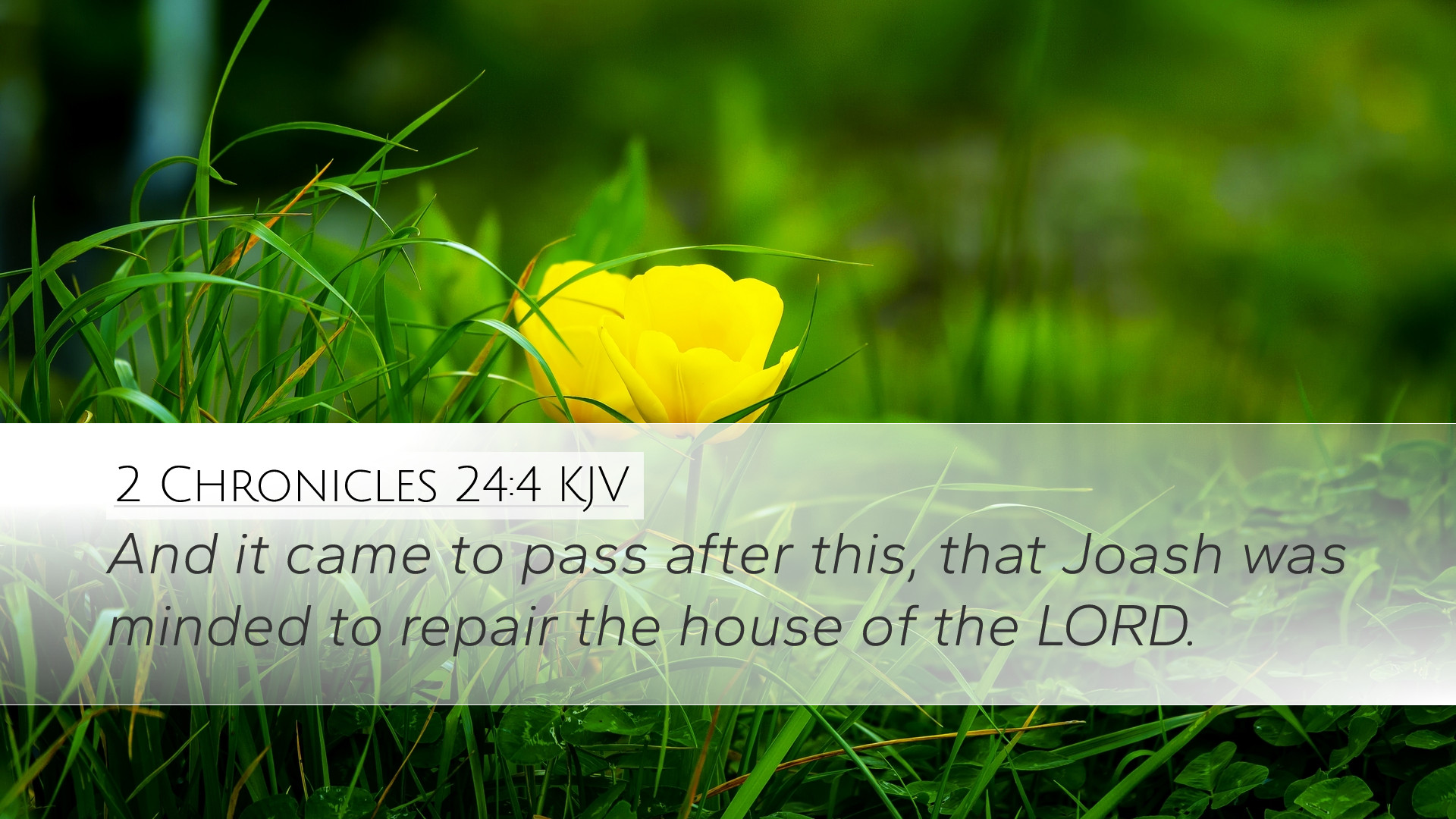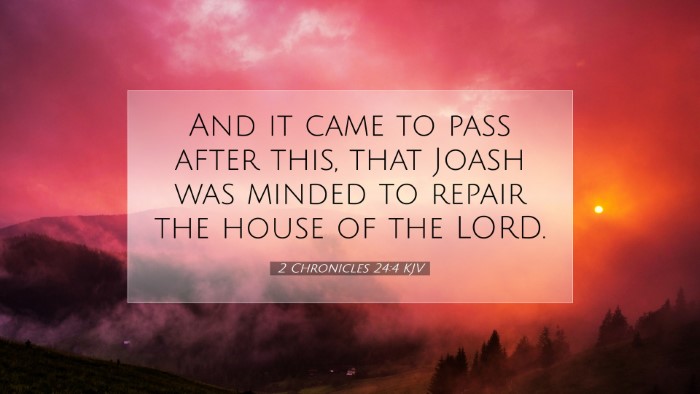Commentary on 2 Chronicles 24:4
Text of the Verse: "And it came to pass after this, that Joash was minded to repair the house of the LORD."
Contextual Background
The Book of 2 Chronicles is primarily concerned with the history of Judah. It emphasizes the significance of the temple, proper worship, and the centrality of the Davidic line. Joash, the son of Ahaziah and a child king, represented a significant hope for Judah following the reign of Athaliah, who had usurped power.
Overview of Commentaries
- Matthew Henry: Highlights Joash's desire to restore the temple as a pivotal moment in his reign. Henry emphasizes the spiritual implications of this restoration, portraying it not merely as a physical reconstruction but as a renewal of covenant fidelity among the people.
- Albert Barnes: Discusses the political and spiritual motivations behind Joash's intentions. Barnes notes that the temple had fallen into disrepair during Athaliah's reign, reflecting the broader spiritual decline of the nation, making Joash’s decision significant for national revival.
- Adam Clarke: Provides a detailed examination of the implications of temple repair. Clarke suggests that this initiative served as a unifying factor for the people and a statement against idolatry, thereby holding both religious and sociopolitical importance in the context of Judah's history.
Theological Insights
This verse serves as a clear indication of a spiritual awakening initiated by Joash. His heart is inclined towards the temple, which can symbolize a renewed interest in God's presence among His people.
- The Importance of the Temple: The temple is not merely a physical structure; it represents the dwelling place of God. Joash's intent to repair it signifies a desire to restore the relationship between God and His people, emphasizing the theological notion that spiritual renewal often involves returning to the places of worship.
- Leadership and Spiritual Awakening: Joash's leadership is pivotal; he becomes an agent of reform. His personal faith and actions inspire the nation, illustrating the biblical truth that leaders profoundly influence the spiritual state of their communities. A leader’s commitment to repairing the altar symbolizes a broader call to revival.
- Restoration as a Theme: The theme of restoration runs throughout Scripture. In the context of 2 Chronicles 24:4, it echoes the call for repentance and renewal found in many prophetic writings. This restoration is holistic, encompassing both physical and spiritual realms.
Practical Applications
Leaders, theologians, and church members can glean several lessons from this single verse:
- Commitment to Spiritual Renewal: Churches today are encouraged to assess their spiritual state and repair any ‘brokenness’ in their worship and dedication to God.
- The Role of Youth in Leadership: Joash, as a young king, reminds us that age should not deter one from being an agent of change. Young leaders can inspire and mobilize their communities toward spiritual pursuits.
- Collective Responsibility: The repair of the temple required collective consent and action from the people. Similarly, a church’s revival requires the engagement and commitment of its entire congregation.
Conclusion
2 Chronicles 24:4 encapsulates a significant turning point in Judah's history through the actions of King Joash. His intention to repair the house of the LORD resonates with the timeless call for restoration within the body of Christ today. By reflecting on the insights of Matthew Henry, Albert Barnes, and Adam Clarke, we can appreciate the depth of this verse and its application for contemporary faith communities.
This passage serves not just as a historical account but as a poignant reminder of the beauty and necessity of returning to God’s presence through actionable faith and communal restoration.


